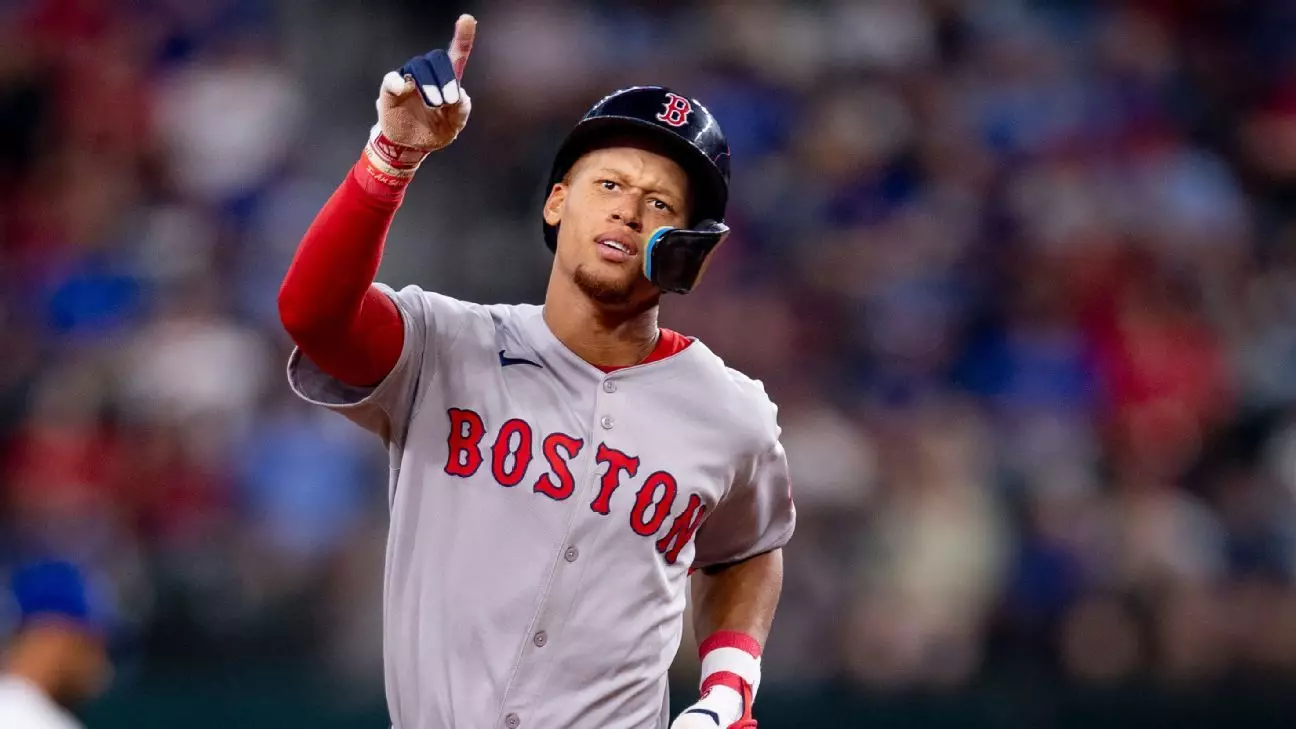In a surprising yet strategic decision, the Boston Red Sox have opted to send promising rookie Kristian Campbell down to Triple-A as they prepare to welcome back outfielder Wilyer Abreu from the injured list. This move signals not only a tactical realignment within the lineup but also highlights the complexities of nurturing young talent in a high-pressure environment. Campbell, despite winning the Minor League Player of the Year award and showcasing tremendous potential earlier in the season, has hit a significant roadblock in his development, raising questions about the balance between player potential and immediate team needs.
The Rollercoaster of Rookie Prominence
Kristian Campbell burst onto the scene earlier in the year, dazzling fans and critics alike with an impressive performance in April that earned him the title of American League Rookie of the Month. With an impressive batting line of .301/.407/.495, there were whispers that he could be the long-term answer for the team’s struggles. However, as the season progressed, reality struck hard. His offensive production plummeted dramatically, with a staggering .159/.243/.222 line in May and June, making his role as the everyday second baseman increasingly untenable. This case illustrates a critical aspect of baseball: adhering to the development timelines of players, especially those stepping into the spotlight with high expectations, is paramount.
The Implications of Injury and Trade
The unfortunate trading of star slugger Rafael Devers to the San Francisco Giants further complicates Campbell’s situation. A move like this can create ripples throughout the roster, influencing both gameplay strategy and mental readiness among players. Losing a significant player necessitates others stepping up, and while Campbell showed flashes of brilliance early on, the subsequent decline in his performance became glaringly evident. The Red Sox’s decision to send him down can be viewed as a recalibration both for the team and Campbell himself—a chance for him to regain confidence, rework his approach at the plate, and ultimately come back stronger.
Turning the Spotlight Back to Abreu
With Abreu’s anticipated return, the Red Sox expect not only an uptick in offensive production but also an essential piece of the puzzle to re-emerge in a season filled with ups and downs. Abreu, who has shown consistent power with 13 home runs already in the season, is poised to add dimension to an outfield that recently felt the absence of depth due to injuries. In an environment rife with competition—highlighted by the presence of defensive stalwart Ceddanne Rafaela, All-Star Jarren Duran, and emerging prospect Roman Anthony—the need for strong performances is crucial as the Red Sox look to solidify their standing within the league.
Future Outlook: Balancing Young Talent and Current Performance
One pressing question looms over the Red Sox: how can they effectively nurture their budding stars while simultaneously holding their own in a fiercely competitive league that demands immediate results? The developmental needs of players like Campbell must be balanced with the current performance and competitiveness of the team. Campbell’s journey demonstrates the delicate nature of fostering young talent, especially when the stakes are high. After experiencing early success, a significant adjustment period may be necessary for him to regain his footing.
It’s important to consider how the Red Sox organization can cultivate an environment where young players are given the time to fail and grow without excessive scrutiny. Their decisions surrounding Campbell must reflect the understanding that greatness often follows hardship and that patience can sometimes be the most powerful ally in the quest for a championship-caliber team.
As the Red Sox navigate this tumultuous season, the integration of returning players like Abreu alongside the development of emerging talents like Campbell will be a testament to the team’s strategic foresight and ability to adapt. Demonstrating resilience as they balance nurturing prospects with immediate performance will dictate their path forward in the challenging landscape of Major League Baseball.


Leave a Reply